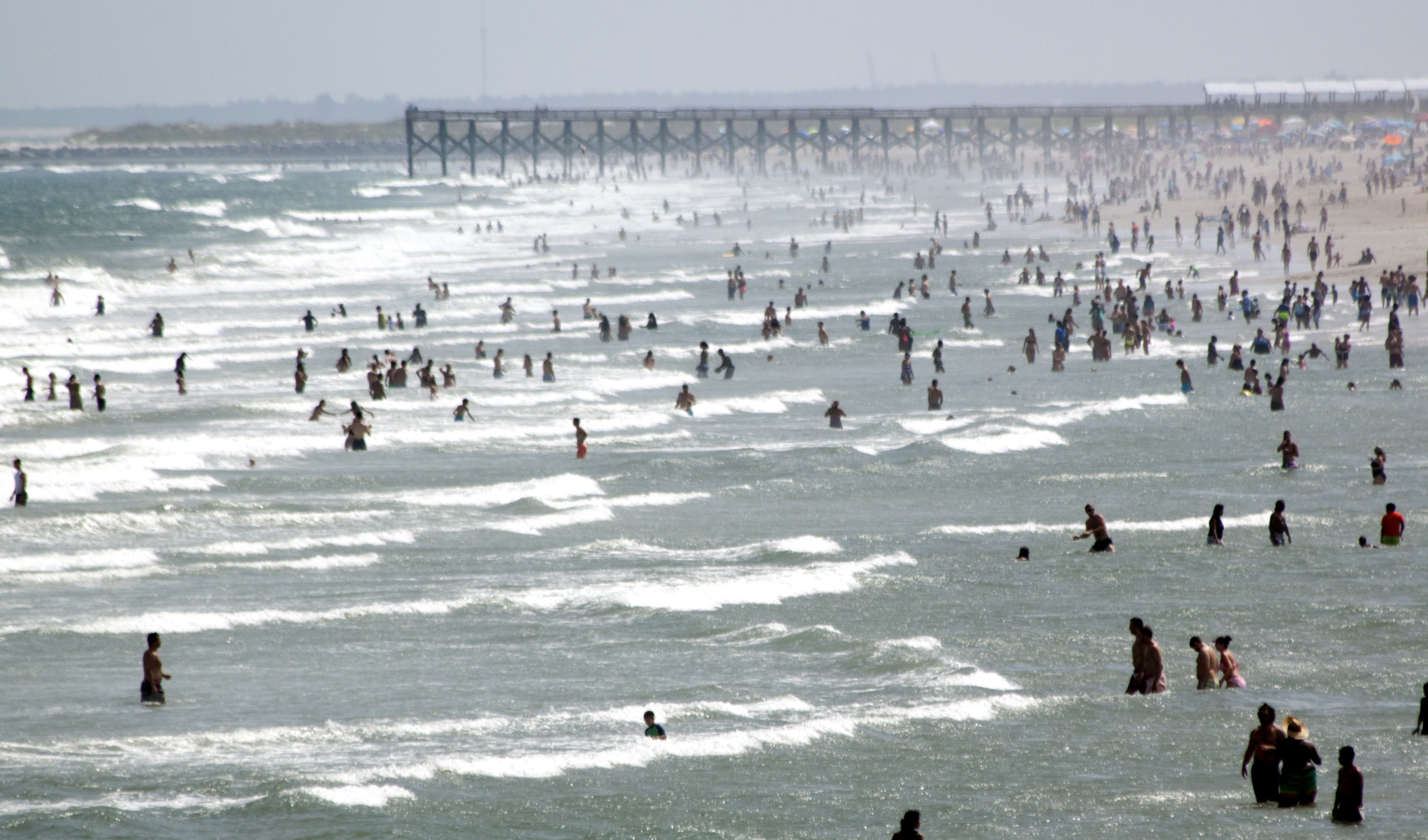Amid all of the news reports about a string of shark attacks along the North Carolina coast, there’s something Dave Baker wants nervous visitors to know: Their drive to the coast was probably more dangerous than the waters along Wrightsville Beach.
Baker heads the town’s ocean rescue service, whose lifeguards safeguard against all sorts of hazards, including rip currents, lightning strikes and unusual water conditions. Nevertheless, eight bites along the coast in less than one month have prompted a few inquiries of the lifeguards as well as town and tourism officials.
Most concerns were pushed aside over the Fourth of July weekend in favor of sun, sand and splashing in the Atlantic Ocean, Baker said. None of the attacks so far have occurred on a New Hanover County beach.
Near Surf City, a 32-year-old Marine became the latest victim of a potential shark attack July 4. Although town officials had no reports, Camp Lejeune officials confirmed the Naval Hospital there treated the man for bites on his hand and forearm. He was released July 5.
A previous bite along the same beach resulted in minor injuries to an 8-year-old boy, but a teenager and a 12-year-old lost limbs to attacks on the same day at Oak Island on June 14. Another person was bitten three days earlier at Ocean Isle Beach. Several bites also have occurred along the Outer Banks.
The frequency of these incidents has fueled all sorts of theories about what is causing them and what, if anything, local officials can do to prevent attacks. The only fact on which shark and ocean experts agree is sharks are always in the water and more people venture into the water every year.
Numerous news reports have speculated that bull or tiger sharks may be responsible for the serious bites. But Paul Barrington, director of husbandry and operations for the N.C. Aquarium at Fort Fisher, said about half a dozen species of sharks are active in the surf at this time of year — many of them capable of inflicting similar wounds.
Among the most common at this time of year is the blacktip shark, he said. The species, which can grow to 6 feet or more, has a powerful jaw “capable of inflicting serious injury,” he said. Some other common species include the sandbar, lemon and sharpnose sharks.
Some sharks prefer inshore waters — also the favorite playing ground for beachgoers. They can pick up a wide range of frequencies and because sound travels well in water, they can mistake a splashing human as potential dinner, Barrington said. Some sharks, including the bull shark, are more aggressive than others, he said, but many varieties can cause serious injuries.
“A shark, within seconds, is not going to be able to tell if it’s zeroed in on food,” he said.
George H. Burgess, who directs the Florida Program for Shark Research at the state’s Museum of Natural History, said one reason more shark bites are occurring is more people are in the water — and the water is the sharks’ turf.
Although North Carolina is experiencing a record number of bites, Burgess noted that Florida, with even more miles of crowded coastline than North Carolina, has had 11 bites so far this year and averages 25.
There could be many reasons — large schools of fish, warmer weather, changes in salinity — but without extensive investigation there is no way to pinpoint the “perfect storm” that led to the recent spate in North Carolina, Burgess said.
Larry Cahoon, a biological oceanographer and professor at the University of North Carolina Wilmington, said people shouldn’t be shocked that sharks swim nearby. Although he emphasized he is not a shark expert, he suggested people may seem bigger when their whole body is in the water. In waist-deep waters nearer to shore — where most of the attacks have occurred — the shark may sense that you’re smaller, he said.
Many surfers and divers encounter sharks in open waters without incident, Cahoon said. A curious shark will show itself.
“The one that is really going to hurt you, you will not see coming,” he added.
Paying attention to surroundings can help, but Cahoon said when people take a dip in the ocean, they are stepping into other species’ territory.
“I can’t guarantee there’s anything we can do to prevent further attacks unless everyone wants to stay out of the water — and I don’t recommend that,” he said.
Wrightsville Beach resident and surfing enthusiast Leon Mckay, 60, keeps the shark news in perspective.
“I have only seen three in 15 years and never had a problem,” he said in an email. “It does happen, but is rare. You have much more of a chance of being struck by lightning.”
email [email protected]




